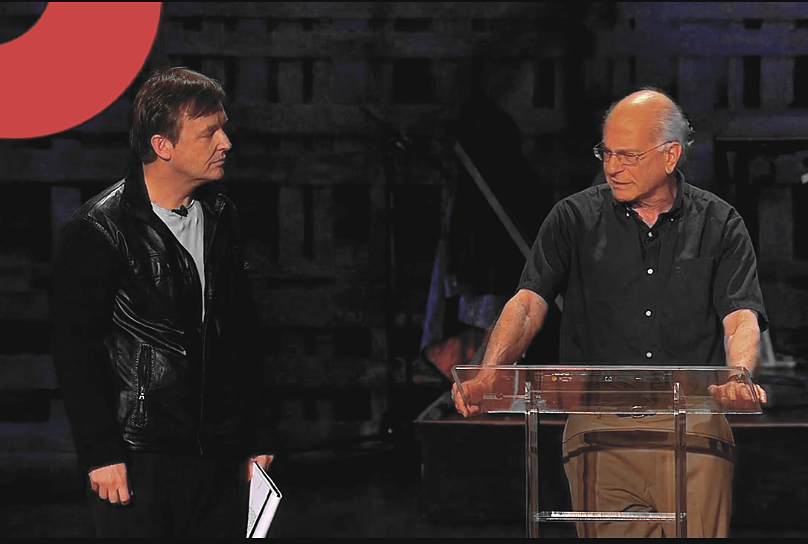Thank you. I've got a question for you. Thank you so much.
谢谢您的演讲。我有个问题想请教您。非常感谢您的演说。
Now, when we were on the phone a few weeks ago,
几星期前,我们有过一次电话通讯,
you mentioned to me that there was quite an interesting result came out of that Gallup survey.
当时您提到您从盖洛普的调查中发现了一个有趣的现象。
Is that something you can share since you do have a few moments left now?
请问您可以跟我们分享一下吗?我们还有几分钟的时间。
Sure. I think the most interesting result that we found in the Gallup survey is a number,
没问题。我从盖洛普调查中发现了一个极有趣的数字,
which we absolutely did not expect to find.
能发现它实属意外。
We found that with respect to the happiness of the experiencing self.
我们发现一个关于经验自我的快乐的现象。

When we looked at how feelings, vary with income.
那就是人的感觉会随收入的多少而变化。
And it turns out that, below an income of 60,000 dollars a year, for Americans
结果表明,对于年收入低于六万美元的美国人而言,
and that's a very large sample of Americans, like 600,000, so it's a large representative sample
这占了样本中的很大一部分,将近有六十万人,这些人是相当具有指标性的,
below an income of 600,000 dollars a year... 60,000. 60,000.
这些年收入低于六十万美元...是六万美元。六万美元。
60,000 dollars a year, people are unhappy,
年收入六万美元的人是不快乐的,
and they get progressively unhappier the poorer they get.
而且收入越低,他们则逾不快乐。
Above that, we get an absolutely flat line.
而当收入逾六万时,我们则得到一条标准水平线。
I mean I've rarely seen lines so flat.
难得看到这么平坦的线。
Clearly, what is happening is money does not buy you experiential happiness,
显然金钱是无法买到经验自我的快乐,
but lack of money certainly buys you misery, and we can measure that misery very, very clearly.
但没钱却的确能给你带来悲郁的境况,而且我们清楚地测到痛苦的程度,非常清楚。
In terms of the other self, the remembering self, you get a different story.
对于另一个自我,记忆自我而言。你则有了一个大相迳庭的故事。
The more money you earn, the more satisfied you are. That does not hold for emotions.
你赚的越多,你就越满意。这跟情感没有任何关联。












